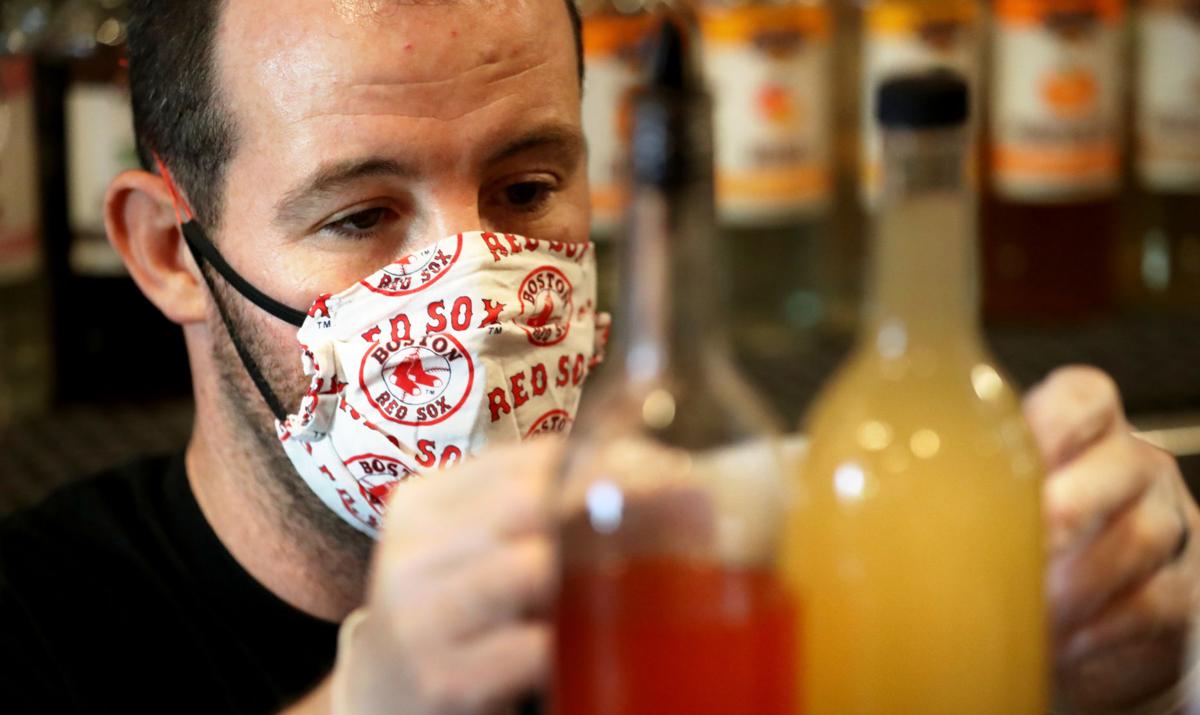After a year (and a half) like no other, Arizona’s governor and legislature believe you deserve a drink ... to go.
With the passage and signing of Arizona House Bill 2773 May 21, restaurants will again have the ability to sell cocktails and other spirits for consumption off premises, beginning Oct. 1 this year.
The legislation follows an executive order Ducey issued during the pandemic last year that authorized the sale of to-go cocktails and drinks from restaurants. That order was eventually overturned after a judge agreed with plaintiffs, including the Arizona Department of Liquor Licenses and Control and a collection of bar owners, that sued the state.
“Businesses owners have shown that offering to-go beverages can be done responsibly and safely,” said Ducey in a news release. “House Bill 2773 will make sure restaurants and bars have the opportunity to expand operations and meet the needs of their customers, especially after weathering the effects of the pandemic."
Proponents of the to-go cocktail concept including restaurant owners, industry associations and others rallied support for the idea. That eventually materialized into legislation proposed by Rep. Jeff Weninger in the form of HB 2773.
"House Bill 2773 will help bars, liquor stores and restaurants grow, and it will attract new businesses to our state,” Weninger said in the same news release. “This is a major win for Arizona’s food and beverage industry, and I thank Governor Ducey for signing this legislation.”
Helping a hurting industry
Another advocate behind the lobbying effort to pass HB 2337 was the Tucson Metro Chamber.
In a news release highlighting the efforts of various restaurant owners in the area, Metro Chamber President and CEO Amber Smith drove home how devastating the last year was on the hospitality industry, but also how integral it is in community revival.
“Restaurants are a keystone of our small business foundation supporting thousands of jobs,” she said. “They showcase the flavor of our community and drive our local economy as both an employer and as a key component of tourism in our great community.”
Ray Flores — President of Tucson Restaurant Advisory Council and owner of Flores Concepts, which includes El Charro and six other restaurant concepts — echoed Smith’s sentiments.
To-go cocktails, Flores said, allow restaurants to "continue to offer an experience consistent with the one our guests know and enjoy as well as help increase sales, employment and tax revenues," he said.
Flores says takeout spirits will help restaurants and "in the end, the ones who will be most happy will be the customers!"
Jaime Dickman, the chief operating officer of Tucson's Barrio Brewing, confirmed that to-go sales had gone up at the brewery during the pandemic. But, since they carry a Series 3 micro-brewer's liquor license, they've always seen a large amount of to-go alcohol sales.
Still, she was happy to hear about HB 2773's passage. If not for Barrio's benefit, for the benefit of others in the industry.
"We're really excited for other restaurants," she said. "We're really excited that other restaurants are able to forge through, post-COVID."
How the law works
Even with the passage of HB 2773, not every restaurant will be able to sell to-go cocktails or other packed spirits. First, in order to even purchase to-go alcohol from a restaurant, a customer will need to purchase food. And once a restaurant stops selling food, it must stop offering to-go drinks.
At bars, however, customers won’t have to purchase food with to-go alcohol. There are more differences, but it boils down to what kind of liquor license an establishment carries and what sort of leases restaurants can work out with bars and liquor stores.
Arizona Restaurant Association chief operating officer and lead lobbyist for the association on HB 2773, Dan Bogert, said that when thinking of HB 2773 and its effect on the industry, it’s important to remember there are two parts.
“We have to-go cocktails as one portion of the bill, and then we have what we refer to as packaged goods,” he explained. “Packaged goods” includes alcohols and spirits contained and fully sealed in their original, manufactured packaging.
Bars, liquor stores and other select businesses like wineries carry a Series 6 or 7 liquor license, which already gives them the ability to sell packaged goods to consumers. But since most bars are geared toward an in-person consumption model, they rarely make such sales.
Now Arizona bars and liquor stores will not only have the new ability to sell to-go cocktails of their own, they’ll have the ability to lease that privilege to restaurants, as well as the separate ability to sell cocktails to-go.
A stipulation in the law requires that restaurants, most of which carry a Series 12 liquor license, lease the ability to sell alcohol to-go off premises from a bar or liquor store in the same county until Dec. 31, 2025 when the Arizona Department of Liquor Licenses and Control will begin to grant individual licenses.
Bogert said that for bars especially, entering into negotiations with restaurants to lease both the ability to sell to-go cocktails and prepacked goods makes financial sense.
“The thing that would be negotiated would be the price,” Bogert said. “[HB 2773 has] given them an opportunity to monetize an asset they haven’t been able to utilize before and that’s the main focus of that part of the legislation.”
Additionally, just because a bar leases the abilities to sell to-go cocktails and packaged goods, doesn’t mean it loses the ability to do either. It’s just now up to the consumer to decide where they’d like to consume, Bogert said.
“Where the convenience comes in, is say, ‘Hey, I don't feel like cooking tonight.’ So, I want to run by and get some food to-go. But I don't want to make two trips for alcohol. So ultimately, I’m willing to pay a premium, to get some alcohol to-go at a restaurant,” Bogert said.





